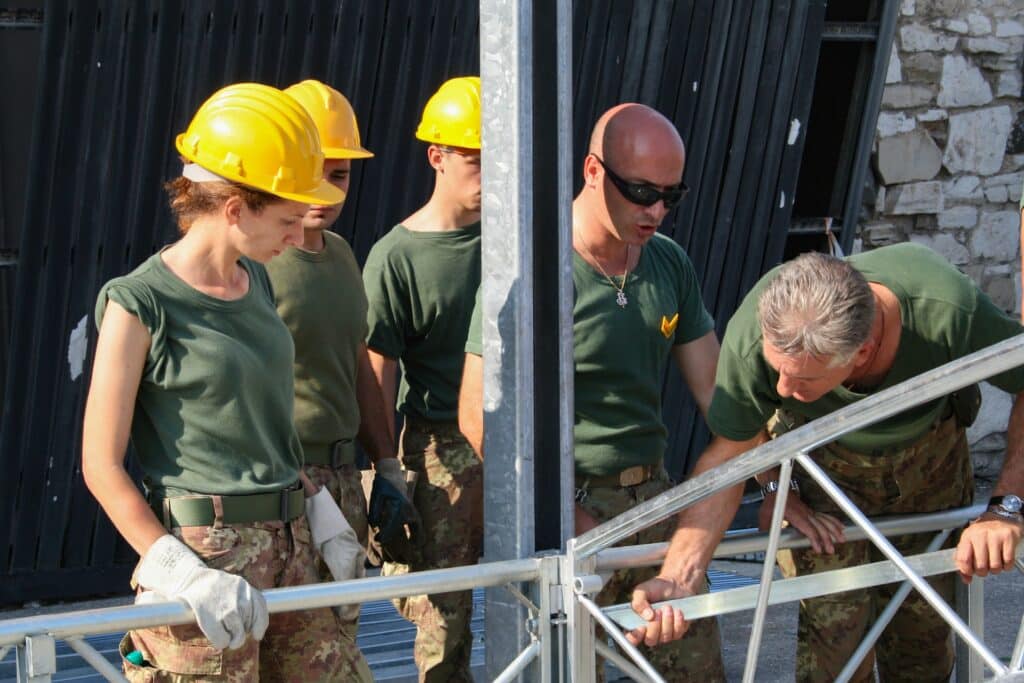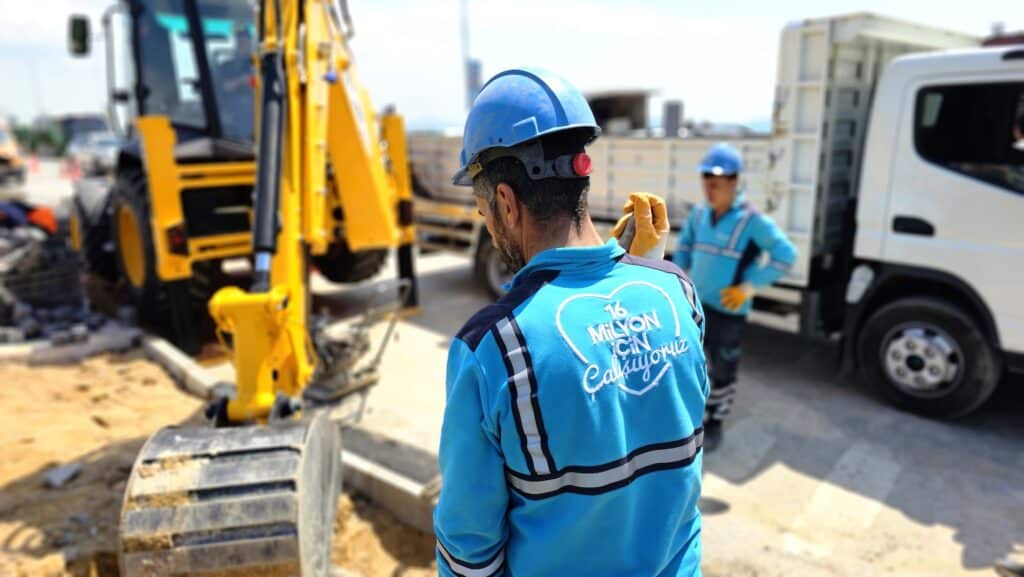Builders are the ones responsible for our cozy homes and offices but if recruiters make a bad hire when onboarding a builder then the foundation of our houses become unsafe.
This blog serves as a comprehensive guide for recruiters navigating the multifaceted landscape of builder recruitment. From defining project requirements to checking references, we delve into each step to unveil the strategic approach needed to assemble a team capable of turning architectural visions into tangible marvels.
Whether constructing towering skyscrapers or crafting cozy homes, the choice of a builder can significantly impact the outcome, reputation, and client satisfaction. Join us as we unravel the essential strategies and insights that empower recruiters to identify and hire builders who stand as pillars of excellence in the construction realm.
Understanding the importance of hiring the right builder
In the world of construction, the selection of a builder is a pivotal decision that can significantly impact the outcome of any project. From towering skyscrapers to cozy homes, the expertise and skills of the builder play a vital role in determining the success and quality of the final product. For recruiters, recognizing the immense importance of hiring the right builder is the foundation upon which successful projects are built.
The right builder brings a plethora of benefits to the table. They possess the technical prowess to transform blueprints into tangible structures, ensuring structural integrity and adherence to industry standards. Beyond technical proficiency, a skilled builder contributes to efficient project management, adhering to timelines and budget constraints. This not only satisfies clients but also enhances the reputation of the recruiting company.
A capable builder fosters effective communication and collaboration within multidisciplinary teams, streamlining the construction process and minimizing conflicts. Moreover, they exhibit adaptability and problem-solving skills when faced with unforeseen challenges, guaranteeing smooth progress even in the face of adversity.
In essence, the selection is an investment in the project’s success, client satisfaction, and the overall brand image of the recruiting firm. By grasping the pivotal role that the right individual plays, recruiters can make informed decisions that pave the way for remarkable constructions and lasting partnerships.
Defining your project requirements and scope
Before embarking on the journey of hiring, recruiters must first lay a solid foundation by meticulously defining the project’s requirements and scope. This critical step serves as a roadmap that not only guides the selection process but also ensures a seamless collaboration between the recruiting company and the chosen person.
The process starts by engaging with key stakeholders, including clients, architects, and engineers, to gain a comprehensive understanding of the project’s goals and objectives. Clearly outlining the project’s size, purpose, intended use, and any specific design preferences forms the basis of effective communication with potential candidates.
Budget considerations are equally crucial. Defining a realistic budget range and discussing potential financial constraints upfront aids in shortlisting builders who can work within these parameters. Timelines are also pivotal; identifying project milestones and completion dates enables recruiters to evaluate builders who can meet these time-sensitive requirements.
In defining the scope, recruiters should detail the specific tasks, responsibilities, and expectations for the individual. This may encompass elements like construction methods, materials to be used, and sustainability goals. By providing a comprehensive scope, recruiters ensure that builders understand the full scope of work and can tailor their proposals accordingly.
In conclusion, the clarity achieved by defining project requirements and scope sets the tone for a successful builder recruitment process. A well-defined project scope not only streamlines the hiring process but also paves the way for a collaborative and efficient partnership between recruiters and builders.
Conducting thorough pre-screening and research
Embarking on the process of hiring demands a robust foundation of pre-screening and research. This phase acts as a vital sieve, helping recruiters sift through the array of potential candidates to identify those best aligned with the project’s demands and the company’s values.
The first step in pre-screening involves crafting a comprehensive checklist of builder qualifications. This might encompass factors such as experience, relevant projects, technical expertise, and industry certifications. Creating this checklist serves as a guidepost, ensuring that recruiters don’t compromise on crucial attributes while evaluating candidates.
In tandem with pre-screening, thorough research is indispensable. Utilizing online platforms, directories, and industry networks, recruiters can gather insights into a builder’s portfolio, reputation, and past collaborations. This research not only provides a snapshot of the builder’s capabilities but also helps anticipate potential challenges and opportunities for synergy.
Contacting references from previous projects can be a game-changer. Insights from these references shed light on a builder’s performance in real-world scenarios, attesting to their professionalism, problem-solving acumen, and overall work quality.
In essence, the pre-screening and research phase isn’t just a cursory step—it’s the bedrock upon which recruiters build their knowledge and understanding of potential builders. This informed approach sets the stage for a more efficient, insightful, and successful hiring process.

Assessing technical expertise and experience
In the realm of hiring builders, assessing technical expertise and experience with a builder assessment is important to examining the cornerstone of a structure. Recruiters, entrusted with constructing successful teams, must delve into a builder’s past projects, skills, and knowledge to ascertain their suitability for the task at hand.
The evaluation process begins with a careful review of a builder’s portfolio. Examining similar projects they’ve completed provides insights into their proficiency with different construction types, complexities, and scales. An individual’s ability to navigate unique challenges and deliver quality outcomes speaks volumes about their technical acumen.
In addition to a portfolio, evaluating and understanding of industry best practices and emerging technologies is paramount. An individual who stays updated with the latest construction methodologies and innovations demonstrates adaptability and a commitment to delivering optimal results.
Experience plays a pivotal role as well. Scrutinizing the builder’s years in the industry and the diversity of projects they’ve been involved in offers a holistic view of their capabilities. It also highlights their ability to handle various project phases, from planning and design to execution and handover.
Through this meticulous assessment of technical expertise and experience, recruiters identify candidates who possess the skills and knowledge necessary to bring complex projects to fruition. This understanding not only fosters confidence in the builder’s capabilities but also ensures the realization of high-quality constructions that meet and exceed client expectations.
Evaluating communication and collaboration skills
In the dynamic realm of construction, the ability to effectively communicate and collaborate is as essential as the tools in a builder’s toolbox. For recruiters aiming to assemble harmonious and efficient project teams, evaluating a builder’s communication and collaboration skills stands as a linchpin of success.
Clear communication is the backbone of any project. Recruiters should assess a builder’s capacity to convey complex technical concepts succinctly to various stakeholders, including clients, architects, and subcontractors. The ability to listen, comprehend, and articulate ideas can prevent misunderstandings, streamline decision-making, and ensure seamless progress.
Collaboration is equally vital. They often function within multifaceted teams where unity is paramount. Evaluating a builder’s history of collaboration sheds light on their capacity to work harmoniously, share insights, and adapt to differing perspectives. Individuals who foster cooperative environments contribute to smoother project execution and timely issue resolution.
Recruiters can utilize scenarios and questions during interviews to gauge communication and collaboration skills. Asking about experiences in resolving conflicts, managing diverse teams, and presenting technical concepts to non-technical audiences can provide valuable insights.
In essence, the ability to communicate effectively and collaborate cohesively transforms them from mere constructors into project partners. By placing communication and collaboration under the recruiter’s lens, a construction project’s success becomes a collaborative endeavor grounded in understanding, synergy, and shared vision.
Verifying licensing, certifications, and insurance
In the intricate world of construction, the assurance of a builder’s credibility and professionalism hinges on verifying their licensing, certifications, and insurance coverage. For recruiters entrusted with building reliable and compliant project teams, this step is fundamental in safeguarding both the project’s integrity and the company’s reputation.
Licensing serves as a legal endorsement of a builder’s competence. Recruiters should thoroughly research the regulatory requirements within their jurisdiction and verify that potential builders possess the necessary licenses. This confirms that the builder meets specific competency standards and adheres to local building codes.
Certifications further attest to a builder’s specialized skills. Recruiters should inquire about certifications relevant to the project, such as LEED (Leadership in Energy and Environmental Design) for sustainable construction. These certifications reflect a commitment to industry best practices and innovation.
Insurance coverage is non-negotiable. Builders should carry comprehensive liability and workers’ compensation insurance. This protects the recruiting company from potential legal and financial repercussions in the event of accidents, damages, or disputes on the construction site.
Verifying these credentials involves cross-checking with relevant regulatory bodies, requesting copies of licenses and certifications, and contacting the builder’s insurance provider for confirmation.
By meticulously verifying licensing, certifications, and insurance, recruiters create a framework of trust and compliance that underpins the entire construction process. This due diligence mitigates risks, fosters confidence, and ensures that the selected builder is equipped to navigate the complexities of modern construction.

Conducting in-depth interviews and practical assessments
In the pursuit of hiring a person that aligns seamlessly with your project and company, conducting in-depth interviews and practical assessments emerges as a pivotal stage. These processes provide recruiters with a firsthand glimpse into a builder’s problem-solving abilities, decision-making approach, and compatibility with the team.
During interviews, pose scenario-based questions that delve beyond technical skills. Inquire about strategies for managing unforeseen challenges, resolving conflicts, and balancing competing priorities. These questions unveil a candidate’s thought process, adaptability, and capacity to collaborate under pressure.
Practical assessments take the evaluation a step further. Assign tasks that mirror real-world construction scenarios. This could involve blueprint analysis, estimating material quantities, or devising a construction plan. Practical assessments not only showcase technical prowess but also reveal a candidate’s attention to detail and innovation.
Recruiters should also evaluate how candidates interact with team members and stakeholders during these assessments. Effective communication, willingness to seek input, and receptiveness to feedback are essential indicators of a builder’s ability to foster productive collaborations.
In essence, in-depth interviews and practical assessments go beyond the resume, offering recruiters insights into a builder’s holistic abilities and their potential contribution to the project’s success. This multi-dimensional evaluation strategy ensures that the selected builder not only possesses technical competence but also aligns with the project’s ethos and the company’s values.
Checking references and gathering feedback
In the quest to hire a builder of exceptional caliber, checking references and gathering feedback emerges as a paramount step in ensuring the right fit for your project. These insights, gleaned from those who have directly worked with the builder, offer a candid perspective that goes beyond credentials and interviews.
Contacting references from a builder’s past projects allows recruiters to tap into firsthand experiences. Questions can delve into the builder’s work ethic, problem-solving capabilities, adherence to timelines, and overall professionalism. Feedback from previous clients, subcontractors, and colleagues provides a well-rounded view of the builder’s performance and reputation.
Gathering feedback is not limited to formal references alone. Exploring online reviews and industry forums can offer additional insights into the builder’s track record and standing within the construction community. Positive testimonials underscore reliability, quality, and collaboration skills, while negative feedback flags potential concerns.
Recruiters should approach this process with an open mind, prepared to consider both positive and constructive feedback. Patterns across multiple references can offer a clearer picture of the builder’s strengths and areas for improvement.
In essence, checking references and gathering feedback arms recruiters with a wealth of knowledge to make informed decisions. This holistic approach ensures that the selected builder not only meets technical requirements but also aligns with the project’s overarching goals and values, contributing to a successful and harmonious construction journey.
Conclusion
In the ever-evolving domain of construction, hiring the right builder is an art form that requires a blend of strategic thinking, meticulous evaluation, and a keen eye for compatibility. By recognizing the significance of technical expertise, communication finesse, collaborative prowess, and credentials verification, recruiters can elevate their selection process to the level of artistry. As projects come to life, builders play a profound role in shaping the landscape of our built environment. With the insights gained from this blog, recruiters are armed with the tools they need to curate teams that not only meet project demands but also exceed expectations. By adhering to these principles, the construction industry can continue to flourish, one carefully chosen builder at a time.
Testlify offers a range of assessments and challenges that allow you to gauge candidates’ knowledge, problem-solving skills, and creativity in real-world scenarios. With Testlify, you can administer real-world challenges that simulate the actual assessment process, giving candidates the opportunity to showcase their skills and approach. The platform provides a structured and standardized assessment process, allowing you to compare candidates objectively and make informed decisions. By incorporating Testlify into your hiring process, you can ensure a more comprehensive and reliable evaluation of candidates, ultimately helping you identify the most qualified individuals for your team.
With our extensive test library, you can objectively evaluate candidates’ abilities, ensuring you shortlist the most talented individuals efficiently. Ready to unlock the potential of your hiring process? Book a free 30-minute live demo with Testlify. Our expert team will guide you through the platform, showcasing relevant skill tests tailored to your organization’s needs. With our support, you can streamline candidate selection, saving valuable time and resources.








